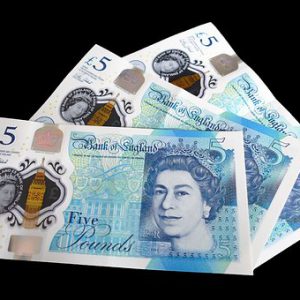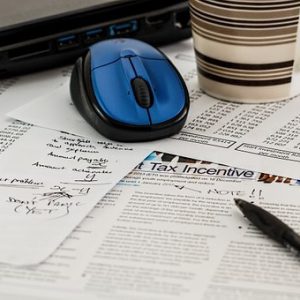The simple guide to VAT – What is it and how does it work?
Sales of goods and services are taxed by the government. This is known as value-added tax or VAT. Businesses with an annual turnover of more than £85,000 will need to register for VAT and complete their VAT return. VAT (value added tax) is a consumption tax which is added onto goods and services that are bought and sold for use (or consumption). below is a guide to VAT, to highlight the basics you need to know.
How is VAT charged?
VAT amounts to a percentage of the original sale price of the goods/services and is calculated according to variables like shipping costs, cost of manufacture and value of the goods/services.
VAT is often charged on the following:
- Hiring or leasing goods to someone
- Business sales
- Selling business assets
- Business goods used for personal reasons
- Commission
- Items sold to staff
Registering VAT for your business
It’s vital that you register the VAT for your business.
The first things you are required to do once your business is VAT registered is to:
- Charge a 19% VAT on services and goods that are sold to businesses and customers
- Pay VAT on the goods and services you sell to customers and other businesses
- A VAT return needs filling every three months
The reason behind this is that the VAT you pay and the VAT you charge eventually balances out. Any of the difference is sorted out by the VAT tax return, with HMRC either refunding the amount they owe you, or you paying HMRC the amount you owe them.
[alexander-btn size=”normal” fullwidth=”no” newtab=”no” text=”Speak with a VAT Control Advisor” url=”https://alexander.co.uk/contact-a-partner/?utm_source=partners&utm_campaign=john_mccaffery”]
A guide to VAT – steps to take
- If your turnover is expected to exceed £85,000 then it is required to become VAT registered.
- VAT should be added separately on invoices to the listing of the service or goods.
- Most invoices list the cost of the goods before VAT, then the VAT, then the total sum.
The three rates of VAT are as follows:
Standard rate – 19%
Reduced rate – 5%
Zero rate – 0%
- Be aware of specific VAT technicalities for certain trades such as the motor trade.
- Registering for VAT can be done online here.
- If you have just become VAT registered but are holding any assets which you purchased previously such as furniture or machinery, you can reclaim VAT back on registration.
- The announcement of the budget each year will often move the goalposts for VAT earning amounts and other intricacies so always double check you are charging the right amount.
[alexander-btn size=”normal” fullwidth=”no” newtab=”no” text=”Speak with a VAT Return Advisor” url=”https://alexander.co.uk/contact-a-partner/?utm_source=partners&utm_campaign=john_mccaffery”]
A guide to VAT – Things you need to consider
When selling to other businesses that are VAT registered ensure that you add VAT to the invoice. It is easy for other businesses to claim back on the VAT paid.
If you are not already VAT registered and are selling to customers then the additional costs should increase by 20%, as they don’t have the ability to reclaim VAT
If you feel like this could affect your sales, then you may have to take a hit on your margins whilst you pay the VAT yourself.
There are also three VAT schemes to help the process for smaller businesses:
VAT Schemes for small businesses
1. Flat rate scheme
Any turnover of less than £150,000 allows businesses to pay VAT under a Flat Rate Scheme. A big bonus is that you are not obliged to record all VAT charged with every payment and purchase. Make sure you give Alexander & Co a call as they will help you decide if this is for you.
2. Annual accounting scheme
You will need to complete a VAT return and pay any VAT due if you use standard VAT accounting. But you can make this much easier to manage when you use the annual accounting scheme.
3. Cash accounting scheme
When you use a standard VAT accounting rate you will need to pay HMRC the VAT you charged on those sales – whether you have received payment or not. However, when you use a cash accounting scheme you will only pay VAT once your client or customer pays you. When reclaiming VAT you must wait until you have paid the suppliers. You must have a VAT taxable turnover under £1.35 million to join the scheme.
[alexander-btn size=”normal” fullwidth=”no” newtab=”no” text=”Speak with a VAT Registration Advisor” url=”https://alexander.co.uk/contact-a-partner/?utm_source=partners&utm_campaign=adrian_berg”]
A guide to VAT – the benefits of being a VAT registered business
Before we finish, here are some ways in which being VAT registered will benefit your business.
- VAT can be applied to the sale cost of all most all goods and services, meaning more profit (in a roundabout kind of way) for your business.
- VAT can be reclaimed from most goods and services purchased from other businesses.
- If you’re a small business that charges VAT, you assume the profile of a bigger business as you are declaring from a legal standpoint that your turnover is more than the £85,000 threshold.
If you would like any more information around VAT as an individual or for your business, don’t hesitate to get in touch. We are also available on 0161 832 4841, where our experienced team are happy to talk.
Contact a professional now
We would love to hear from you. Please fill out this form and we will get in touch with you.





